100 Years of Agricultural Economics
Our State












Over its first 100 years, the founding mission of the Mississippi State University Department of Agricultural Economics has remained consistent: to assist the state, nation, and world in the understanding and application of economic principles.
Established first as the Department of Markets and Rural Economics in 1913 under the direction of Professor T. J. Brooks, the department is the fourth oldest among the College of Agriculture's degree-awarding entities.
In 1918, H. O. Pate took the helm as department head. His term lasted one year before R. W. Clothier assumed leadership of the department. In 1920, J. N. Lipscomb, a former Hinds County agent, was named head and served for more than 20 years.
The Lipscomb Era included several milestone events. Most important for state farmers and planters was the advent of a program of economic research connected to the work of the Mississippi Agricultural and Forestry Experiment Station.
With the long-serving head's departure from the increasingly important department, another series of short-term chairmanships followed from 1943 to 1949. W. J. Edens, Frank J. Welch, and D. Gray Miley each held the position for two-year terms. During the 1947-48 academic year, Roscoe J. Saville left Louisiana State University to join the staff at MSU. Within two years, he was named chair, a post that he would hold until 1956.
David W. Parvin, the first doctoral graduate from the department, accepted the department head's position in 1956 and held it until deteriorating health forced his retirement in 1972. With the retirement of Parvin, native Mississippian and MSU alumnus Verner G. Hurt accepted responsibility for leading the Department of Agricultural Economics. Hurt received his bachelor's degree in 1950 and his master's degree in 1955 in agricultural economics.
By many numerical measures, the Hurt Period represented MSU Agricultural Economics at its greatest strength. Staffing reached an all-time record, and the numbers of graduates at all three degree levels surpassed all previous periods of similar length.
With Hurt's retirement, the department continued the tradition of hiring from within its own ranks with its next trio of successors. James H. Simpson, Jr., served a one-year interim term as chairman before Earl Stennis assumed leadership from 1988 to 1992. James G. "Bud" Dillard then served another one-year interim appointment.
John Lee was hired as the first head without any previous connections to the institution. Lee was serving as director of the USDA Economic Research Service when Dillard suggested he consider the position. Lee fundamentally transformed the department and pursued the best available talent when searching for faculty members. When he retired in 2001, Lee left what was perhaps the department's most productive legacy. Two interim chairs, Lynn Reinschmiedt and Bill Herndon, served while a thorough search was conducted for a suitably talented replacement for the former USDA official turned college innovator.
After an exhaustive national effort to find the most suitable candidate for the job, Steven C. Turner received an invitation to lead the department. Changing Bulldog jerseys, the Virginia Tech graduate came to MSU after a successful career at the University of Georgia.
Lloyd-Ricks-Watson Building
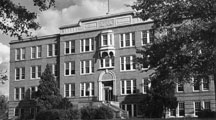 The department moved into its permanent home in 1931 with the construction of the Lloyd-Ricks-Watson Building. The building was designed by architect C. H. Lindsley, and construction began in 1929 by contractor I. C. Garber at a cost of $210,000. An addition was built in 1939 at a cost of $162,000. This building has been home to research on a multitude of topics, including agriculture, economics, sociology, chemistry, animal husbandry, entomology, bacteriology, plant pathology, horticulture, forestry, human sciences, nutrition and veterinary medicine.
The department moved into its permanent home in 1931 with the construction of the Lloyd-Ricks-Watson Building. The building was designed by architect C. H. Lindsley, and construction began in 1929 by contractor I. C. Garber at a cost of $210,000. An addition was built in 1939 at a cost of $162,000. This building has been home to research on a multitude of topics, including agriculture, economics, sociology, chemistry, animal husbandry, entomology, bacteriology, plant pathology, horticulture, forestry, human sciences, nutrition and veterinary medicine.
In 2008, the building received its first major renovation since the east wing was added in 1939. The building now bears the names of the three men who served as director of the Experiment Station and Extension Service: Edward R. Lloyd, Jr., James R. Ricks, and Vance H. Watson. In 2008, the Mississippi Legislature approved renaming the structure to honor Watson's service to the state. The 67,000-square-foot Lloyd-Ricks-Watson Building is home to the School of Human Sciences and the Department of Agricultural Economics.
The department has a long tradition of advancing the state through economic research and service. When the program of economic research with the Mississippi Agricultural and Forestry Experiment Station began in 1920, faculty held joint appointments in teaching and research.
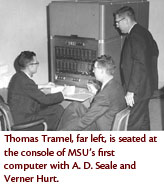 In the late 1950s, the department transitioned from Monroe Friedan calculators to personal computers, marking a fundamental change in research and teaching. Thomas Tramel, a faculty member in the department, served on the original committee appointed by late MSU President Ben Hilbun to select a computer for the university in 1957. Verner Hurt, A. D. Seale, and Tramel are credited with one of the most significant developments in the early days of computer utilization: They developed computer algorithms to employ linear programming techniques in solving applied economic problems. With the use of computers, agricultural economics faculty began to design enterprise-scale planning budgets for a variety of crops. These budgets are still used by producers today.
In the late 1950s, the department transitioned from Monroe Friedan calculators to personal computers, marking a fundamental change in research and teaching. Thomas Tramel, a faculty member in the department, served on the original committee appointed by late MSU President Ben Hilbun to select a computer for the university in 1957. Verner Hurt, A. D. Seale, and Tramel are credited with one of the most significant developments in the early days of computer utilization: They developed computer algorithms to employ linear programming techniques in solving applied economic problems. With the use of computers, agricultural economics faculty began to design enterprise-scale planning budgets for a variety of crops. These budgets are still used by producers today.
The department's faculty also began its work with the Mississippi Tax Commission, now Department of Revenue, to estimate agricultural land values for use in tax assessments. These values are used by every county tax assessor in Mississippi to calculate local property taxes.
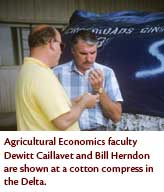 Research in the department has been focused on solving problems associated with production, processing, and distribution of agricultural products, as well as the use of human and natural resources. Agricultural Economics is recognized for its contributions in developing and utilizing quantitative/analytical methodologies to solve the problems of clientele in the state and region.
Research in the department has been focused on solving problems associated with production, processing, and distribution of agricultural products, as well as the use of human and natural resources. Agricultural Economics is recognized for its contributions in developing and utilizing quantitative/analytical methodologies to solve the problems of clientele in the state and region.
MSU agricultural economists are often asked to assess the feasibility of various public projects and private ventures. Results are not always enthusiastically embraced, but decision makers are made aware of the economic consequences of their choices. The department was instrumental in providing economic data to those interested in catfish production, processing, and distribution. It also provided analyses of various feed ingredients, which is one of the primary costs for catfish production.
While research projects in the department are varied, they all work to provide economic solutions to industry and producers.
Extension
 The merger of the Extension Service with this academic and research department occurred in the late 1980s. Prior to the merger, Extension personnel operated in separate departments. This merger brought in the Agricultural Economics Extension Department and Extension Agricultural Marketing Department. These additions allowed all of the university's agricultural economists to work together to provide more diverse and comprehensive services to the state's producers.
The merger of the Extension Service with this academic and research department occurred in the late 1980s. Prior to the merger, Extension personnel operated in separate departments. This merger brought in the Agricultural Economics Extension Department and Extension Agricultural Marketing Department. These additions allowed all of the university's agricultural economists to work together to provide more diverse and comprehensive services to the state's producers.
Currently, the department is a leader in encouraging and assisting communities in economic and community development. The addition of the Extension Community Resource Development group in 2006 and the recent additions of the Center for Economic Education and Financial Literacy and the Southern Rural Development Center have increased the department's capacity to serve the state's citizens. Numerous programs and the lead Extension faculty member are listed below.
- Agricultural Commodity Podcasts (John Michael Riley)
- Ag Market Blog (John Michael Riley)
- Community Health Care (Alan Barefield)
- Community Leadership (Alan Barefield)
- Economic Impact Studies (James Barnes)
- Mississippi Bricks to Clicks (James Barnes)
- Mississippi Market Maker (Ken Hood/Ben Posadas)
- Public Water Systems (Alan Barefield)
- Strategic Planning (Alan Barefield)
- Tourism and Customer Service (Becky Smith)
Farm Policy
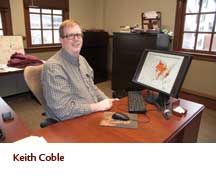
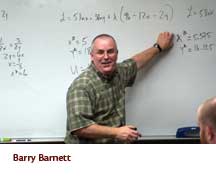
Agricultural economists Keith Coble and Barry Barnett have spent more than 20 years in the policy and risk assessment fields. These international experts train students who influence policy at both the state and national levels.
Coble serves as the economist for the leadership of the Senate Agricultural Committee, a position he holds part-time in addition to his duties on campus. Barnett is an advisor for the U.S. Federal Crop Insurance Program and assisted in the development of the area yield index insurance product still used today. Barnett is also actively engaged in advising agricultural agencies in lower-income countries.
Coble and Barnett also help Mississippi farmers tackle the complexity of the Farm Bill. Working with colleagues Ardian Harri and Jesse Tack, they develop computer models to help farmers make the best decisions to alleviate risk. Extension colleagues John Michael Riley and Brian Williams help communicate the information to the state's producers.
Several alumni have been instrumental in the development of farm policy. Many of them have worked on the staff of U.S. Senator Thad Cochran.
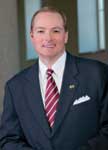 Mark Keenum (BS 1983, MS 1984, PhD 1988) |
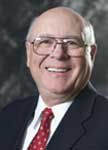
Wayne Boutwell (PhD 1972) |
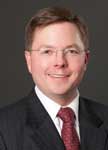 Hunt Shipman (BS 1992) |
 David Graves (MS 1969) |
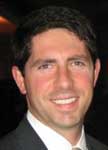 Hunter Moorehead (BS 1997) |
Mark Keenum worked as chief of staff to Cochran and then went on to become undersecretary of the USDA before becoming Mississippi State University's 19th president. He was heavily involved in the Farm Bills of 1990, 1996, and 2002.
Wayne Boutwell was an economist for the Department of Agriculture in Washington and served as a senior aide on Cochran's staff.
Hunt Shipman worked as an agricultural legislative assistant for the senator and then went on to serve as deputy undersecretary for Farm and Foreign Agricultural Services and acting deputy undersecretary for Marketing and Regulatory Programs in the USDA.
David Graves worked as the principal farm policy adviser to Cochran and was deeply involved in the landmark 1985 Farm Bill.
Hunter Moorhead actively worked on the 2008 Farm Bill as a domestic policy advisor to President George W. Bush.
Environmental Economics
Environmental economists study the balance between the demand for natural resources and the need to protect and nurture the environment. The department began working in environmental economics in the late 1970s. The nature of environmental economics lends itself to regional and national study, and MSU economists are leading experts in analyzing ecological questions.
In the 1980s, Lynn Reinschmiedt conducted environmental economics projects such as evaluating soil conservation practices and their effects on non-point pollution and productivity. Most recently, agricultural economists Matt Interis and Dan Petrolia studied non-market valuation—the value of goods and services that ecosystems provide to society but are difficult to quantify.
Interis and Petrolia recently sought to estimate survey respondents' willingness to pay for large-scale restoration projects in the Barataria-Terrebonne National Estuary in coastal Louisiana. The estuary encompasses 4.2 million acres of wetlands, ridges, forests, farmlands, and communities between the Mississippi and Atchafalaya River Basins in southeast Louisiana. It is home to more than 500,000 people and provides habitat for 735 species of birds, fin-fish, shellfish, reptiles, amphibians, and mammals. Barataria-Terrebonne also provides storm protection for more than 1 million people, including residents of New Orleans. The survey was national in scope and found that respondents were willing to pay for coastal restoration projects.
In this type of study, as is the case for most non-market valuations, the scientists determine how much people are willing to spend and compare this figure to the cost of the project to determine if the project is worth executing.
Other studies include topics such as why coastal homeowners at risk of flooding choose not to purchase flood insurance, how American's view ethanol, and how consumers perceive Gulf of Mexico oysters.
Agricultural economist Matt Freeman focuses his research on fishery economics and management and regulatory policy of natural resources. Other faculty members are also developing models to evaluate how state and federal policies impact natural resource industries, including biofuels.
Environmental economics is a growth area for the department, and in keeping with the tradition of creating future leaders, MSU is one of a few universities offering a major in this field.
Alumni Leaders
With more than 2,000 alumni, it is hard to name just a few who have been successful without leaving others out. Agricultural economics graduates work in many different fields and have received recognition in international, national, and state arenas. Alumni who earned master's degrees and went on to pursue additional studies at other institutions or those who earned doctoral degrees at MSU now hold appointments at land-grant universities throughout the U.S. Important appointments often await international students when they return to their homelands after earning MSU degrees. In the previous section, alumni who have been instrumental in Farm Bill legislation were featured. The next few pages highlight alumni who are making differences in other ways.
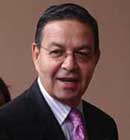 Rafael Leonardo Callejas Romero
Rafael Leonardo Callejas Romero(BS 1965, MS 1966)
former president of Honduras, current president of the National Federation of Independent Soccer Honduras
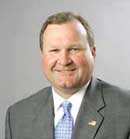 James E. Newsome
James E. Newsome(PhD 2001)
former commissioner of the U. S. Commodity Futures Trading Commission, former president and chief executive officer of the New York Mercantile Exchange
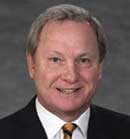 Glenn McCullough
Glenn McCullough(BS 1977)
businessman, former mayor of Tupelo, former chair of the Tennessee Valley Authority
 Karl Wright
Karl Wright(PhD 1983)
provost, Claflin University, former president, Florida Memorial University
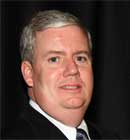 Gary Blair
Gary Blair(BS 1981)
branch manager, Southern Ag Credit
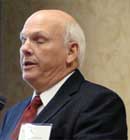 Phil Pepper
Phil Pepper(BS 1970, MS 1973)
former state economist for Mississippi
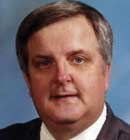 Corbit Lamkin
Corbit Lamkin(PhD 1981)
chancellor, Southern Arkansas University Tech
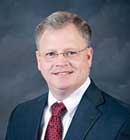 Darrin Webb
Darrin Webb(BS 1987, MS 1989)
state economist for Mississippi
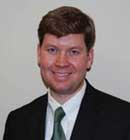 Derreck Surrette
Derreck Surrette(MS 2000)
executive director, Mississippi Association of Supervisors
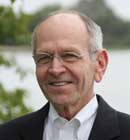 William Hawks
William Hawks(BS 1958, MS 1970)
CEO at AgWorks Solutions LLC, past undersecretary, Marketing and Regulatory Programs, USDA
 Jeremy Jack
Jeremy Jack (BS 2005, MS 2006)
owner, Silent Shade Planting Company, Bayer CropScience 2013 Young Sustainable Farmer
 Brandon Gibson
Brandon Gibson(BS 1996, MS 1997)
attorney at law, judge, Tennessee Court of Appeals, Western Section
Student Leaders
Agriculture and related businesses create more employment than any other industry. The agribusiness industry accounts for nearly one-fifth of the U.S. gross national product and employs close to one-fourth of the U.S. labor force. Fully understanding how economic forces affect today's agricultural industry is critical for those seeking careers in this sector. Graduates are able to apply economic reasoning to personal, private, and public activities. With a placement rate of over 90 percent, students find that their agricultural economics majors offer abundant career opportunities and provide them with strong analytical and communication skills.
 Randy Little, undergraduate coordinator, understands the importance of professional experience through internships in helping students find successful careers upon graduation. The participation rate in internships has grown in recent years, and Little attributes this growth to interns sharing their experience with other students. Little and other faculty encourage students to do everything possible to add value to themselves and think in terms of long-range plans. Most students who intern usually have a job upon graduation.
Randy Little, undergraduate coordinator, understands the importance of professional experience through internships in helping students find successful careers upon graduation. The participation rate in internships has grown in recent years, and Little attributes this growth to interns sharing their experience with other students. Little and other faculty encourage students to do everything possible to add value to themselves and think in terms of long-range plans. Most students who intern usually have a job upon graduation.
Little also attributes student success to the faculty who put a great deal of time and effort into keeping the curriculum relevant. Faculty also regularly introduce research concepts into the classroom, which helps students understand the application of economic principles.
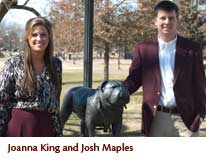 Undergraduate student Joanna King and alumnus and current research associate Josh Maples both understand the value of internships in building their resumes. Both interned for Senator Cochran, one of the top-ranking members of the Senate Agricultural Committee. Such internships have introduced students firsthand to agricultural policy.
Undergraduate student Joanna King and alumnus and current research associate Josh Maples both understand the value of internships in building their resumes. Both interned for Senator Cochran, one of the top-ranking members of the Senate Agricultural Committee. Such internships have introduced students firsthand to agricultural policy.
King is a native of Bentonia, Mississippi. Her involvement in 4-H first sparked her desire to major in agriculture. She interned for Cochran in fall 2013, right in the middle of the Farm Bill debate. King also interned for Farm Credit for America as an intern loan officer, and she plans to work this summer selling crop insurance.
Maples, an Elkmon, Alabama, native, received his bachelor's in 2011 and his master's in 2013. His fascination with agricultural policy first drew him to the major. He plans to pursue a doctoral degree and then teach or work in the policy arena.
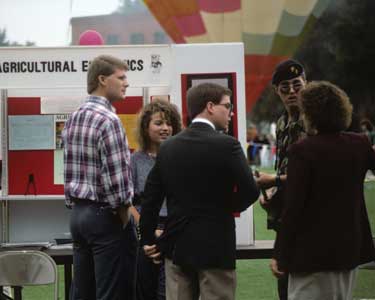 Students attending a recruiting event
Students attending a recruiting event
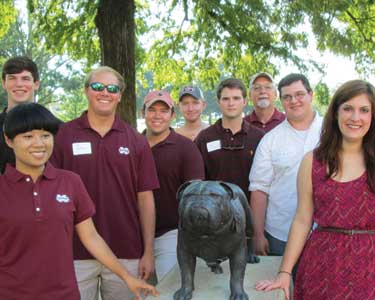 Students in the National Agri-Marketing Association
Students in the National Agri-Marketing Association
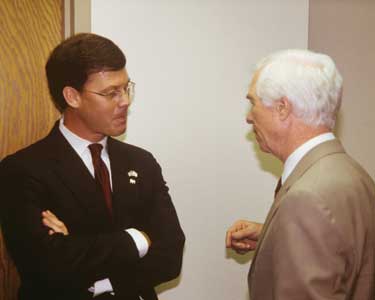 Chip Pickering and U.S. Senator Thad Cochran
Chip Pickering and U.S. Senator Thad Cochran
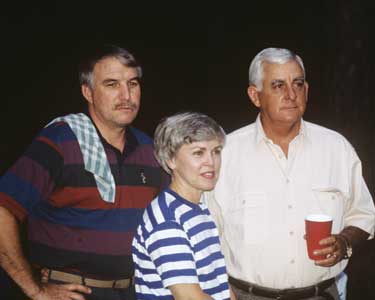 Bill Herndon, Mary Frances, and Bud Dillard
Bill Herndon, Mary Frances, and Bud Dillard
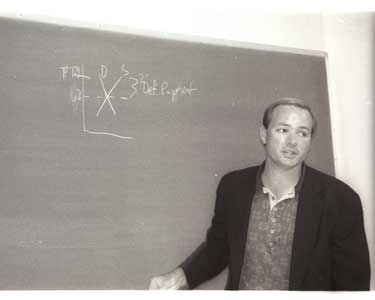 Mark Keenum teaching class
Mark Keenum teaching class
 Bob Williams
Bob Williams
 Wayne Malone
Wayne Malone
 Albert "Chico" Allen
Albert "Chico" Allen
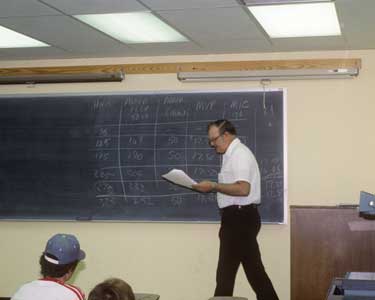 Jim Simpson
Jim Simpson
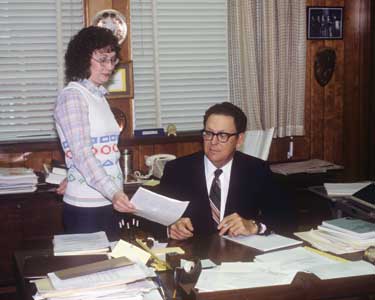 Diane Jones and Verner Hurt
Diane Jones and Verner Hurt
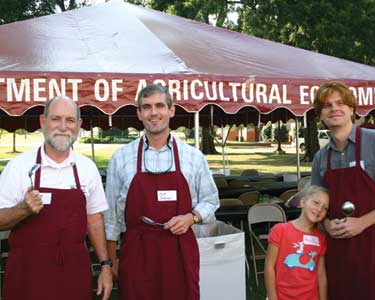 Steve Turner, Matt Freeman, and Matt Interis
Steve Turner, Matt Freeman, and Matt Interis
 Steve Henning and Karl Wright
Steve Henning and Karl Wright
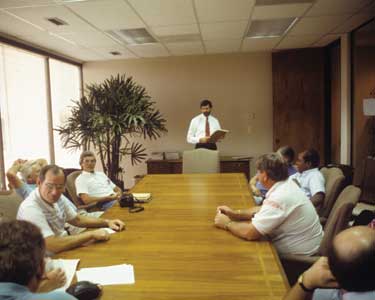 Faculty meeting
Faculty meeting
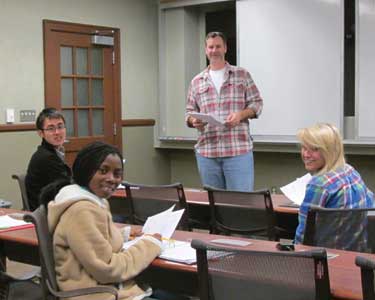 Jess Tack and students
Jess Tack and students
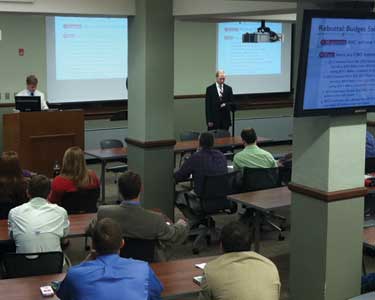 Keith Coble's policy class
Keith Coble's policy class
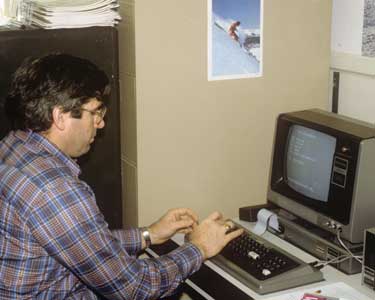 Wallace Killcreas
Wallace Killcreas
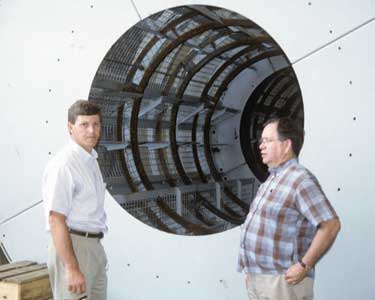 Marty Fuller
Marty Fuller
